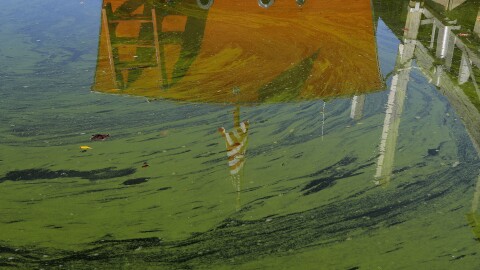The Ohio Environmental Protection Agency is asking for broad public input on its plan to have the open waters of western Lake Erie declared impaired under the federal Clean Water Act. And a leading group opposed to the state agency’s decision is encouraging its supporters to offer feedback, too.
Craig Butler, director of the Ohio EPA, says algae problems in the lake are not improving and an “impaired” designation will spur action because it can make mandatory the current voluntary efforts to deal with issues like fertilizer runoff.
Ohio EPA recently changed its list of impaired waters to include Western Lake Erie, after years of complaints from environmental groups and several lawsuits. Now, it’s asking state legislators to give it more power over farm practices.
Butler says the Ohio EPA wants to get it right.
“We want to make sure that we take robust public comment on that from all of our stakeholders,” Butler says. “It’s an open-comment period; there are opportunities for people on our website for webinars to educate people on that. And then we’ll propose our final action in May to the federal EPA.”
Joe Cornley of the Ohio Farm Bureau agrees about getting it right, but not about possible mandates. He says that’s why the agriculture community needs to use the open-comment period to make its views known, too.
“We hear that voluntary conservation by farmers is not working,” Cornley says. “And I’d say that’s not exactly a fair statement. First of all it presumes that voluntary is the only way we try to attack this problem. That could not be further from the truth. There is a long list of regulatory agencies and sets of rules that farmers have to comply with.”
An impaired designation does not usually include direct rule changes, but it kicks off a process under the Clean Water Act that requires pinpointing where pollutants are coming from, in what amounts and who is responsible.




